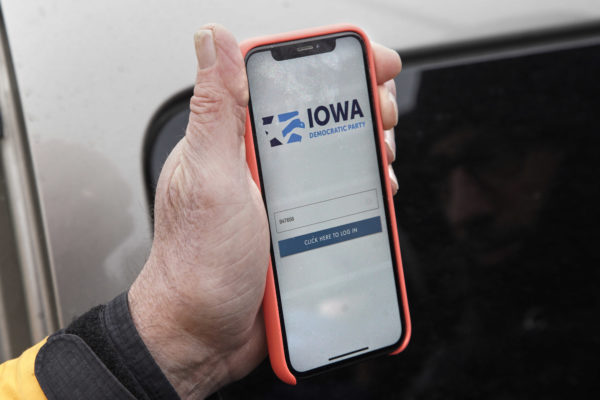Want to make people more uneasy about the integrity of elections in this country? Turns out, there’s an app for that.
The chaos of the Iowa Democratic Caucus reinforces at least two facts about election security: new technology isn’t always a good thing, and poor communication from election administrators is all but guaranteed to weaken voter confidence and lead to runaway speculation.
This is a particularly bad time that dip in confidence, when there already are legitimate reasons to be concerned and aware about nefarious attempts to influence U.S. elections.
To be clear, Democratic party officials in Iowa said there was no hacking or intrusion. But the technical issues, delay and frustrating communication (or lack thereof) from officials has created an opportunity for irresponsible conspiracy theories to spread.
The blame for the delayed results in Iowa, it would seem, rests on a basic level with a software company named (almost too perfectly) Shadow Inc. A problem with the company’s mobile app, which was hoped to speed up the process of reporting results from each voting precinct, left Iowans and the rest of the country largely in the dark for multiple days.
Blame certainly rests with the Iowa Democratic Party as well for turning to a new technology in an already complicated contest, at what might be the worst possible time for further doubt in election integrity. Apparently some precinct chairs hadn’t even downloaded the app to their phones before Monday, so clearly there was an issue with preparation even if the underlying problem was with a “ coding issue.”
The actual voting results were documented in paper form, and Iowa Democratic Party officials say those results are unaffected by the problems with the reporting app. The state party, which is in charge of administering the caucus, said the paper documentation allows them to verify the data from the app. But even with that failsafe, the addition of a new, little tested reporting technology raises a lot of questions.
“As the Iowa Democratic Party has confirmed, the underlying data and collection process via Shadow’s mobile caucus app was sound and accurate, but our process to transmit that caucus results data generated via the app to the [Iowa Democratic Party] was not,” Shadow, the app creator, said in a tweet Tuesday afternoon. “We take these issues very seriously, and are committed to improving and evolving to support the Democratic Party’s goal of modernizing its election processes.”
It’s important to remember with election security that modern doesn’t always equate to better. The state of Maine’s paper ballot system, for example, provides insulation from hacking or electronic voting machine error.
“Paper is pretty darn reliable,” Secretary of State Matt Dunlap told the BDN in an interview Tuesday afternoon, adding that “there’s nothing to hack” and that it provides a critical failsafe.
Dunlap observed a “shear lack of transparency” in the Iowa contest, saying that, as of Tuesday afternoon, “nobody knows what’s going on.” He correctly noted how the lack of clear answers from officials “amplified the scope of the problem.”
Maybe we demand results too quickly in a world of instant information and analysis, but it’s not too much for voters or the media to expect transparency when things don’t go as expected.
“When you don’t have information, fear and rumor rush in to fill the void,” Dunlap said, also citing Maine’s experience implementing ranked-choice voting in some elections.
Americans should be on guard for attempts to influence our votes, while the states, local governments and parties administering elections must do what they can to provide information promptly and transparently (the experience this week also reaffirms the recent decision in Maine to move to state-run presidential primaries rather than party caucuses).
But the Iowa caucus chaos has proven, above all, that there’s a certain wisdom to dumbing down election technology.
…

















